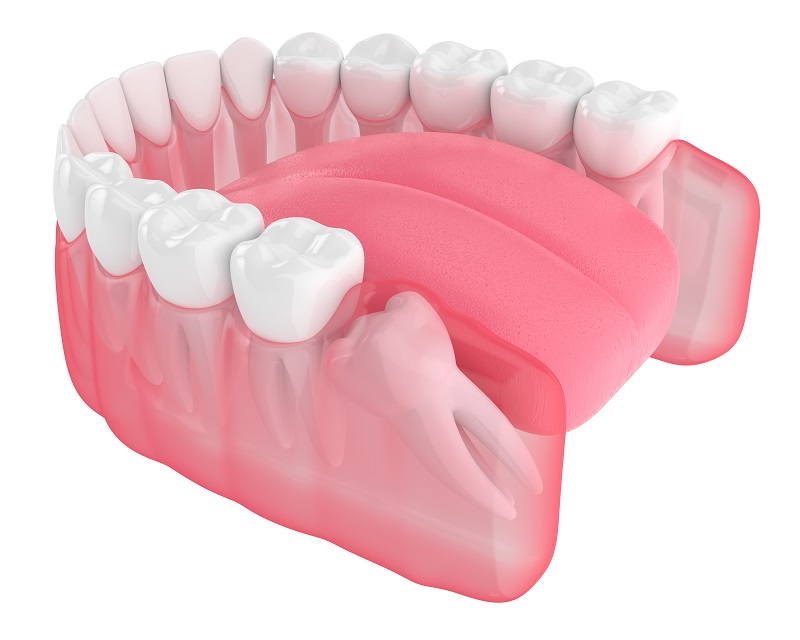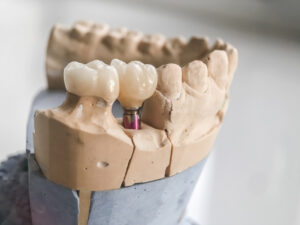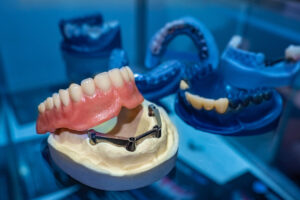The third molars, or “wisdom teeth,” typically erupt between the ages of 17 and 22. In most cases, all four wisdom teeth will erupt. But, there are those individuals that – due to genetic factors – may not have any wisdom teeth form at all. The Dental Research Journal estimates as few as 5% and as many as 37% of the population may never have wisdom teeth come in. Of those that do have wisdom teeth, only 15% of these persons will experience no complications, the other 85% will require extraction or other remedial intervention.
Do you believe yourself or a dependent is in need of wisdom teeth removal? Call Susquehanna Oral & Facial Surgery & Dental Implant Center in Williamsport, Pennsylvania, for a consultation today! Read on to learn more about the reasons wisdom teeth are extracted and the symptoms that may indicate an extraction is necessary.
| Experiencing Wisdom Tooth Pain? |
| Contact Susquehanna Oral & Facial Surgery & Dental Implant Center to schedule a consultation. Find relief and restore your oral health – call today! |
| Call Us > |
Top Reasons for Wisdom Tooth Extractions
If you have incoming wisdom teeth, your dentist may recommend an extraction for a variety of reasons. Some of the most common reasons dentists recommend extractions include:
- Overcrowding/spacing issues. Wisdom teeth are commonly extracted to prevent overcrowding and spacing issues. If there is insufficient space along the jawbone, incoming wisdom teeth can push neighboring teeth out of alignment and cause overcrowding and other issues.
- Wisdom tooth becomes impacted. When there is not enough space for the third molars to erupt properly, the tooth can become stuck, or “impacted.” Impacted wisdom teeth can damage neighboring teeth and also cause an infection or cyst to form.
- Prevent future complications. One of the most common reasons to have wisdom teeth extracted is to prevent future complications. The presence of wisdom teeth can make it challenging to brush and floss thoroughly, which can lead to cavities, gingivitis and other complications.
Have a wisdom tooth concern? Call Susquehanna Oral & Facial Surgery & Dental Implant Center to schedule a consultation.
Symptoms You May Need a Wisdom Tooth Extraction
While a personal consultation with your dentist is the recommended way to go about answering the question of whether or not a wisdom tooth should be extracted, you should be on the lookout for certain warning signs. If you notice any of the following symptoms, you should schedule an appointment with your dentist as soon as possible:
- Pain around back molar. Tenderness and some discomfort can be expected when a wisdom tooth emerges, but you should not experience outright pain. Anytime you experience pain in the mouth (including when a tooth erupts), you should call your dentist office to schedule a checkup as soon as possible.
- Presence of blood. Typically, if blood is present when you brush or floss, it means an infection is present. If a wisdom tooth is impacted or erupting improperly, it can lead to an infection requiring intervention.
- Bad breath or foul taste in mouth. Bad breath (halitosis) and a foul taste in the mouth are both the result of excess bacteria in the mouth. Excess bacteria can be caused by a number of factors, such as poor hygiene, but it may also result from a wisdom tooth that has erupted partially. When a wisdom tooth fails to fully erupt, food particles and biofilms can become lodged between the tooth and gums, leading to excess bacteria and potentially an infection. If you notice a foul taste in your mouth or bad breath, be sure to bring this up with your dentist.
- Tenderness or swelling. Tenderness can be expected when wisdom teeth erupt, but if it is accompanied with swelling, it could indicate the wisdom tooth is not erupting properly and an infection may be present.
- Pain near back of jaw and/or recurring headaches. When a wisdom tooth presses on neighboring teeth, or causes the surrounding tissue to become infected, you likely would expect the pain to be localized. But, the nerves around the face are fairly interconnected, which means an issue with a wisdom tooth may present itself as a headache or pain at the back of the jaw.
An improperly erupting wisdom tooth can also alter your bite, or “occlusion,” which is the way your teeth come together. An improper bite can lead to pain and/or stiffness in the muscles of the jaw.
If you experience any of the symptoms mentioned above, call Susquehanna Oral & Facial Surgery & Dental Implant Center.
What if I Don’t Have Symptoms?
Due to each individual’s unique physiology, it is possible to have a wisdom tooth complication and be completely free of symptoms such as pain, discomfort, swelling or change in taste or bad breath. Therefore, if you or a dependent have a wisdom tooth that is coming in, it is always a good idea to have its progress monitored by your dentist. Sometimes, an issue is only detectable through an X-ray or CBCT scan.
Did Know Know? Wisdom Tooth Extractions Were Once Uncommon
Up until the industrial revolution, wisdom tooth complications were relatively rare. This is due to the fact that modern diets include softer, heavily processed foods. You may not realize it, but the jawbone depends on repeat mechanical action to grow and regenerate tissue. Past diets of tough meats, raw nuts, fruits, and vegetables provided the mechanical stimulation necessary to grow sufficient bone tissue to accommodate the eruption of wisdom teeth.
What Can I Do About Wisdom Tooth Pain?
If an incoming wisdom tooth is accompanied by pain, it likely means a complication is also present. If you cannot visit your dentist in the next several days, there are something things you can do to manage your wisdom tooth pain.
- Pain relievers. Many patients find relief from over-the-counter pain relievers such as ibuprofen and aspirin. You should monitor your intake of acetaminophen to avoid liver damage.
- Cold/warm compresses. Cold compresses may also be used on the outside of the cheek. (Some patients also alternative between cold and warm compresses.)
- Salt water rinses. You can also prepare a salt water rinse using warm water. Gargling salty water can help reduce inflammation and control bacteria.
- Local anesthetics. Benzocaine-containing local anesthetics such as Orajel™ and Anbesol® are also effective in reducing pain.
What you should not do is ignore wisdom tooth pain. An impacted wisdom tooth is not something that will resolve itself. If you are experiencing wisdom tooth pain, reach out to your dentist to schedule an appointment as soon as possible.
How Much Does Wisdom Tooth Removal Cost?
If you’ve been scheduled in for an extraction, one of your top questions will likely be “How much does wisdom tooth removal cost?” Based on national averages, having a wisdom tooth extracted (without factoring in insurance) can cost as little as $200 or as much as $1,100. Fortunately, dental insurance plans cover wisdom tooth extractions.
The wide disparity in cost quoted above accounts for the range in complexity of wisdom tooth extraction procedures; some extractions are simple while others are more complex and require further surgical intervention. Your doctor will let you know how much you can expect to pay before any treatment is administered.
Schedule a Consultation
Have a concern about your wisdom teeth? The team at Susquehanna Oral & Facial Surgery & Dental Implant Center is here to help you find relief from pain and get your oral health back on track. Call us today.




